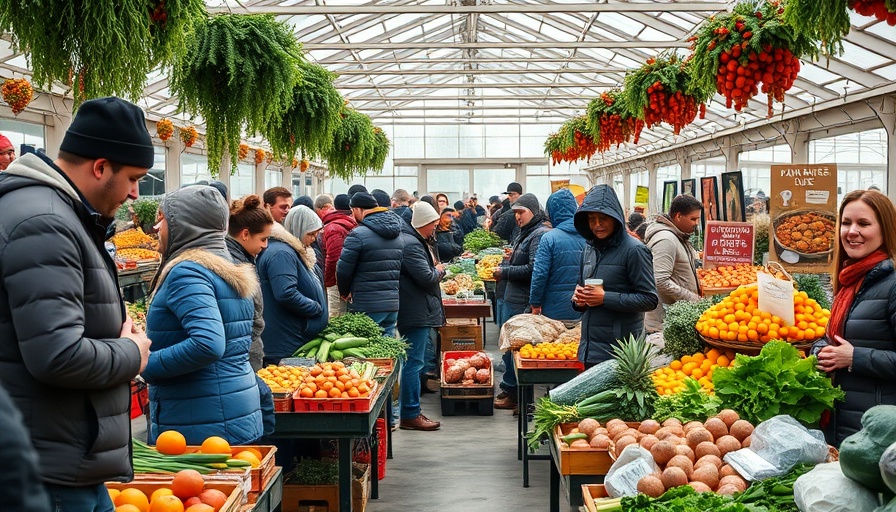
Why We Need Winter Farmers Markets: A Growing Trend
As the seasons turn and the temperature drops, many farmers markets close their doors, leaving consumers without access to fresh, local produce. However, the demand for these markets is far from dwindling, even in winter months. Across the United States, more communities are now supporting winter farmers markets, ensuring that consumers can enjoy locally sourced food year-round.
Expanding Access to Local Goods
Statistics reveal a growing interest in farmers markets; according to USDA data, from 2008 to 2009, the number of farmers markets rose by 13%, with significant growth continuing into subsequent years. Despite the common misconception that winter weather deters farmers from selling, the reality is that many producers are finding ways to extend their seasons by offering special winter markets. The idea is simple: consumers want to maintain connections with local farmers and enjoy the benefits of fresh, seasonal ingredients throughout the year.
Creative Solutions for Cold Weather
In regions like New York, over 60 farmers markets operate during the winter, providing an abundance of goods. These winter markets present an opportunity to purchase nutrient-rich storage crops like root vegetables, as well as animal products, cheeses, and even holiday gifts crafted by local artisans. Farmers are innovating with their offerings, creating special events, seasonal decorations, and festive themes that entice customers during the colder months.
Conserving and Preserving: Planning Ahead
For those who may not have a winter farmers market nearby, planning is essential. During the summer, consumers can purchase large quantities of produce and preserve them for winter use. Techniques in food preservation like canning, freezing, and dehydrating allow individuals to enjoy the fruits of their labor long after the harvest is over. Such practices not only reduce reliance on supermarkets but also promote sustainable living and self-sufficiency.
A Vision for Year-Round Markets
Take, for example, the heartwarming story of Fort Collins, Colorado. Starting with a single market in December 2006, it has now blossomed into ten winter markets, operating from November to April. These markets have garnered such popularity that there are plans for a year-round, indoor, European-style market, indicative of the growing support for localized, sustainable food sources.
Connecting Communities Through Food
Winter farmers markets are not just about food; they represent a wider community connection. Participating in local markets fosters relationships between consumers and farmers, sharing the experience of the harvest cycle throughout the year. The opportunity for social engagement cannot be understated; joining a community around local food cultivates a sense of unity and purpose.
Inspiration for Sustainable Practices
The movement towards sustaining winter farmers markets reflects a deeper understanding of the importance of local agriculture and sustainable lifestyles. By prioritizing such markets, communities are empowered to breathe life into local economies and recognize the value of purchasing from local farmers. This lifeblood of community not only nourishes families but also enriches the environment and encourages a culture of sustainability.
A Call to Action: Support Your Local Farmers
It is time to rally behind our local farmers and participate in the vibrant culture of winter farmers markets. By shopping at these venues, you are choosing to support your community while enjoying delicious, local products. Make a plan this winter to explore nearby markets, engage with farmers, and even take part in share programs to maximize your access to fresh produce. Together, we can cultivate a sustainable future, one season at a time.
 Add Row
Add Row  Add
Add 




 Add Row
Add Row  Add
Add 

Write A Comment